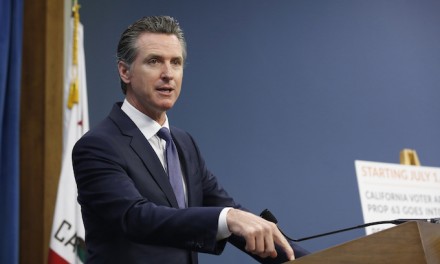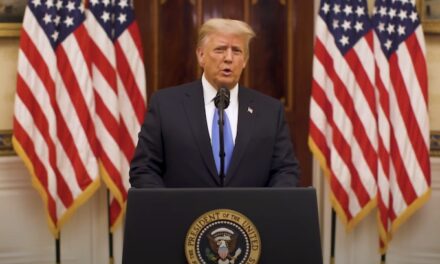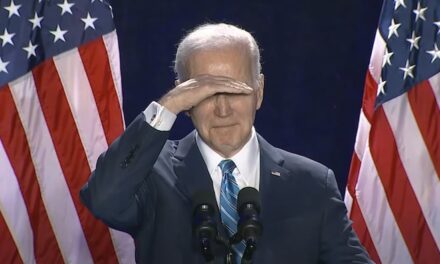One of the “last lines of defense” against rampant child hunger — which skyrocketed amid the pandemic — is on the chopping block as the universal free school lunch program reaches its expiration date next month.
It’s likely to leave thousands of cash-strapped families already confronting rising prices at the grocery store thanks to inflation, struggling to figure out how to get food on the table, advocates say.
Two years into the pandemic, food insecurity is more than double what it was at the outset, data shows. While expanded federal aid briefly worked to curb hunger, the number of food-insecure Massachusetts families with children has rebounded almost to peak levels as programs designed to curb rising hunger have evaporated.
Now, access to free school breakfast and lunches, which provides meals to more than 26 million school children daily, is on the chopping block too.
“This program — universal free school meals — is one of our last lines of defense for families who are food insecure and struggling. It provides two meals a day for kids, which alleviates hunger and saves parents from having to pay for school meals,” said Erin McAleer, CEO of Project Bread.
Federal lawmakers at the outset of the pandemic approved a universal free school meals program to combat rising food insecurity. The federal program operated by the U.S. Department of Agriculture expires on June 30. Though the department has indicated it is amenable to continuing to offer free meals to all students, it requires a waiver from Congress to do so.
Congress failed to include the program expansion in a $1.5 trillion spending bill in March, leaving McAleer skeptical of the “political will” to extend it for a third time as the masks have come off and pandemic fatigue hits peak levels.
But U.S. Reps. Ayanna Pressley and Jim McGovern said they aren’t giving up.
In a Wednesday letter, the Massachusetts Democrats pressed U.S. House and Senate leaders on the “urgent need” to allow the USDA continued authority to operate the expanded free school lunch program that makes meals free for all students regardless of need and allows food to be distributed anywhere.
“While we have made significant strides in combatting the pandemic, families across our districts and across the nation are continuing to struggle with lingering impacts of the pandemic that contribute to food insecurity,” lawmakers said. “From pervasive staffing shortages at school lunch programs, to ongoing supply chain disruptions, to rising costs of food and other supplies, the barriers to food security for many families are unrelenting.”
Food insecurity for families with children doubled just two months into the pandemic as the economy ground to a halt and millions lost jobs and the paychecks that came with them. By March 2020, Census pulse survey data revealed roughly one in five Massachusetts families with children were food insecure. It was a staggering statistic matched on the national level that triggered an influx of federal aid dollars and an expansion of existing programs aimed at reducing child hunger.
A combination of expanded support through programs like free school lunches and direct aid including stimulus money, pumped-up unemployment benefits and heftier child tax credits for parents saw the number of food-insecure households with children drop to about 10% by April of 2021, data show.
But as the pandemic has become more routine, federal aid has dried up and two years into the pandemic, food insecurity has rebounded to levels nearly as high as seen at the outset. The last stimulus checks were sent out a year ago, unemployment dried up last September and the expanded child tax credit cut off early this year.
Still, Congress has been slow to respond this time despite twice already granting the USDA a waiver extension. Lawmakers argued allowing it to expire now would be akin to “leaving millions of children hungry from the summer through the foreseeable future.”
“News reports point to concerns over cost as the reason for Republican opposition to these critical programs that will keep our most vulnerable children fed,” Pressley and McGovern said in their letter. “This is simply unconscionable. In one of the richest nations in the world, it is an absolute disgrace that millions of children are left to struggle with food insecurity every day.”
Once the program expires, only those meeting strict eligibility requirements will be able to access free school meals.
According to Project Bread, families will lose access to 450 locations that have offered free meals across 65 Massachusetts cities and towns for more than two years because of pre-pandemic policies once the program expires. This summer, 5 million fewer meals will be distributed to needy families, she said.
The program is of particular importance in a place like Massachusetts where the cost of living is so much higher than most of the nation, but families are subject to the same eligibility requirements.
Free lunch, which often also includes free breakfast, has proven to be a popular pandemic-era policy expansion. In districts where free meals were not previously offered to all students, participation has jumped 40%, McAleer said.
While some cities, including Boston, will continue to offer universal free lunch, most will not.
State lawmakers are mounting an effort to make universal free school lunch permanent in Massachusetts. Maine and California have already moved to do the same.
It would cost the state $110 million a year to provide free lunches for all students. House lawmakers in their recently passed state budget included the cash to cover the cost of the program for another year. Advocates like McAleer are hopeful that will buy them the time to work on permanent legislation.
But the line item wasn’t included in the Senate budget bill unveiled this week. McAleer said she’s “confident” that will get ironed out in conference committee as the two chambers work out a compromise bill.
A growing number of advocates and state legislators have thrown their support behind the School Meals for All bill, which would make universal free lunch permanent for all students. Nearly 100 state lawmakers have signed onto the bill led by Rep. Andy Vargas in the House and Sen. Sal DiDomenico in the Senate.
“We need this. For a lot of families right now, this is just an expectation. We’re going on two years now. This has been a huge lifeline for families,” McAleer said.
©2022 Advance Local Media LLC. Visit masslive.com. Distributed by Tribune Content Agency, LLC.
—-
This content is published through a licensing agreement with Acquire Media using its NewsEdge technology.



















“universal free school lunch program reaches its expiration date next month.”
Why should other peoples children get free breakfast and lunch? Why shouldn’t their own parents pay for these inexpensive meals for their own children?
It’s likely to leave thousands of cash-strapped families already confronting rising prices at the grocery store thanks to the Socialist Democrat Party’s created inflation, struggling to figure out how to get food on the table, socialist Democrat advocates say.
Socialism is, broadly speaking, a political and economic system in which property and the means of production are owned in common,
typically controlled by the state or government.
If this socialist Democrat Party is successful in making everyone dependent on the socialist Democrat Party’s government for their survival by driving up the cost of everything. Then socialist Democrat Party will have taken control of the country and WE the PEOPLE will be nothing more than servants, slaves, wards to this treasonous socialist Democrat Party Dictatorship.
This is the objective of this treasonous, socialist Democrat Party!
We are already slaves to this government so they can redistribute our money for votes. There are 80+ programs of welfare so nobody is struggling to feed their family. If welfare recipients work they refuse raises and promotions saying they don’t want to lose their “benefits”. Welfare recipients file child tax credit even though they May pay no taxes. I know one who bought a new car with this and said thank God for all my kids, the kids we are forced to support for them for 18 years each. No one from the government ever checked to see if welfare recipients have been offered more money and responsibility. They get the money anyway so they don’t want to work for it which hurts businesses and society and of course taxpayers. There are churches and charities that receive tax breaks and donations in the billions of dollars to help the needy so why are the taxpayers having their money redistributed? We need welfare abolished because it is evil, it is used for control and votes. We need to turn the needy over to charities and churches who should be doing their jobs or lose their tax breaks. Clerks can see how much is left to spend on a welfare food stamp card, unbelievably many have thousands of dollars left do use. If they don’t need this money why isn’t it take him back and return to the taxpayers? This government has made us their slaves and welfare has done it . Welfare recipients are living better than we are.
ESPECIALLY since those parent(s), are likely already GETTING PAID To feed their kid(s), via Wic, Welfare and EBT!
Dems love the word “free”—until it becomes part of the word “freedom”.
I’m sick to death of supporting other peoples kids. That’s not the American way. They already have 80+ programs of welfare and child tax credits even though they may pay no taxes. I am vehemently against this.
You’re not the only one.. I am sick to death of paying for SCHOOLS< i have no kids in!
Welfare recipients are already benefiting from 80+ programs of welfare. If they work they refuse raises and promotions saying they do not want to lose their “benefits.” Clerks can see how much is left to spend on food stamp cards, unbelievable that some people have thousands of dollars to spend while we watch every item we put in our shopping cart. Welfare recipients file for child tax credits even though they may pay no taxes, I know one that bought a new car that way. They said thank God for all their kids. You know, the kids they have for us to support for 18 years each. I’m sick and tired of supporting other peoples kids, that’s not the American way. That’s the way for Democrats to collect more votes to stay in power and control. There’s no excuse for parents not to be supporting their own children. Welfare should be abolished, there are churches and charities that receive tax breaks and donations in the billions of dollars to help the needy. Taxpayers get no breaks, why are the churches and charities not doing their jobs? The reason is they would get people off of assistance and find them a job and cut them off. That’s the way it should be.
Abolish welfare NOW! Turn the needy over to the churches and charities that receive tax breaks and donations in the billions of dollars to help the needy. Time to free the taxpayers from their slavery!!!!!!
I’ve been saying abolish welfare for YEARS..
Comical how the dem-rats “demand” the free lunch b. s. be renewed (nothing’s FREE, the taxpayers foot the bill) , while at the same time twiddling their thumbs while Title 42 expires.
Let’s see how much of the taxpayer’s money they can throw around trying to “buy” votes before the mid-terms.
Disgusting.
Clearly, what we desperately need in the USA are a few million more poor, unskilled, people who cannot and never will support themselves.
Very true, Max. But they WILL vote for the dem-rats when they’re eligible, and that’s all that matters.
THING IS< they should never ever be eligible..